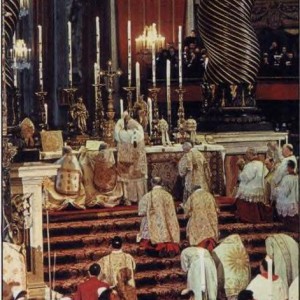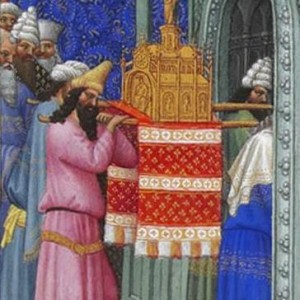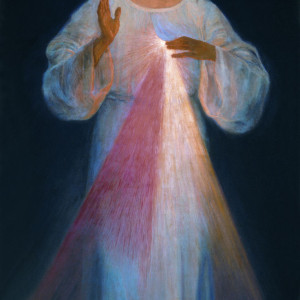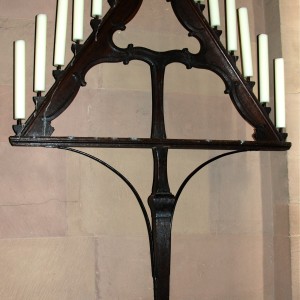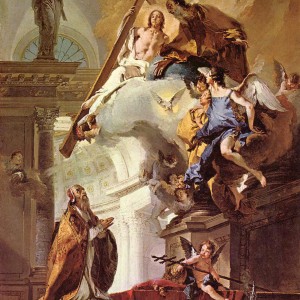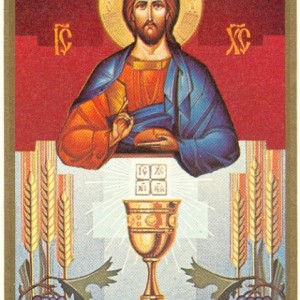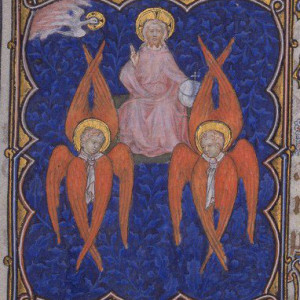Pope John XXIII elevating the Host Ever wonder why we refer to the Eucharistic species as “the Host”? The Latin hostia means “sacrifice,” and it is from this definition that the Eucharistic Host takes the name, as a reminder that in the Eucharist, Christ is the Sacrifice for our sins. But the Latin word hostia comes from hostis, which… Continue reading Five Senses in which the Eucharist is the Host
Tag: liturgy
Worshiping with Our Whole Bodies
One of the most beautiful things about Catholic worship, particularly when it’s done well, is that it’s a full-body experience. We smell the incense, we sing Psalms and hymns (and hear these being sung), we listen to the Scriptures and the homily, we see the Sacrifice of the Mass (and the priest’s liturgical gestures are… Continue reading Worshiping with Our Whole Bodies
Why Bishops Don’t Say, “The Lord be With You”
When we switched to the new translation of the Mass this past Advent, much was said about the fact that now, when the priest says, “The Lord be with you,” we respond, “and with your spirit,” instead of “and also with you.” In a 2005 newsletter announcing this change, the USCCB explained: Eugeniusz Kazimirowski,Divine Mercy (1934) Where… Continue reading Why Bishops Don’t Say, “The Lord be With You”
The Beauty of Tenebrae
Tenebrae Hearse I went to Tenebrae last night at the Dominican House of Studies. If you’re not familiar, it’s a beautiful way of reflecting upon the death of Christ. Here’s how Wikipedia explains it: The principal Tenebrae ceremony is the gradual extinguishing of candles upon a stand in the sanctuary called a hearse.[2] Eventually the Roman… Continue reading The Beauty of Tenebrae
March for Life 2012, Byzantine-Style
Today is the March for Life. While much of the press (local and national) ignores the March, our local NBC affiliate did a good job covering the basics: Monday marks the 39th anniversary of Roe v. Wade, the Supreme Court decision that removed many state and federal restrictions on abortion. Thousands will gather in the… Continue reading March for Life 2012, Byzantine-Style
The New Translation: What’s Changed and Why
So, we’re most of the way through Advent* (I know, it’s gone by incredibly fast — if you want to slow it down, try fasting). It seems like a good time to pause and reflect on the new translation of the Mass that was rolled out on the first Sunday of Advent. What’s changed, and why?… Continue reading The New Translation: What’s Changed and Why
Jesus Makes the National Catholic Reporter Feel Like Losers?
The National Catholic Reporter appears to be claiming that Jesus makes them feel like losers. This bizarre claim comes from their editorial against the new translation of the Mass texts. Here’s what they said: Because of our belief in one family in this big tent, we are loath to characterize disagreements as battles. Battles have winners and… Continue reading Jesus Makes the National Catholic Reporter Feel Like Losers?
Lying Our Way Through the Creed
Elizabeth Erazo, a Protestant well on her way into becoming either Orthodox or (if she can brave it) Catholic, made a great point about Creedal Protestantism: It’s a curious thing — a lot of well-informed Protestants will talk very much about how historical context is vital to properly understanding the Bible. This is so true,… Continue reading Lying Our Way Through the Creed
The Liturgy of St. James on the Eucharist
Yesterday, I talked about how helpful it is to learn from both the Early Church Fathers (the theologians of their day), and the early Liturgies (which reflect what worship would have looked like in the early Church). Today, I want to look at one particular Liturgy, the Liturgy of Saint James, on one particular topic,… Continue reading The Liturgy of St. James on the Eucharist
Listening to the Early Church Fathers AND the Liturgy
Catholic apologists rightly rely quite heavily upon the writings of the Early Church Fathers. There’s good reason for it: The Early Church Fathers are virtually the only way we know what Christianity is. How do we know which Books belong in the Bible? How do we know who wrote the Gospels? How do we know… Continue reading Listening to the Early Church Fathers AND the Liturgy
